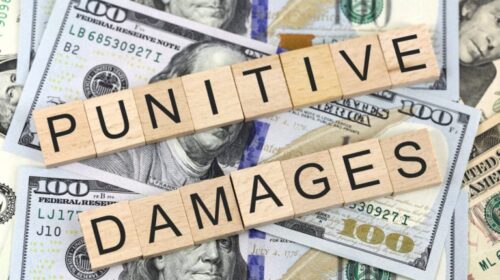Medical costs, missed income, and psychological distress are frequently covered by compensation in personal injury cases. Punitive damages, on the other hand, might also be granted in situations of severe wrongdoing. Punitive damages are issued to punish and deter the defendant from engaging in such behaviors rather than to compensate victims.
Proving eligibility for punitive damages can be challenging, which is why hiring personal injury attorneys is essential for navigating these complex claims and ensuring proper representation. If you believe you may be eligible for punitive damages in your personal injury case, here are some factors to consider.
Extreme Misconduct
Punitive damages are usually reserved for severe wrongdoing, including intentional harm or severe negligence. This means the defendant must go beyond carelessness and show a clear intent to harm others or ignore their safety on purpose.
Extreme misconduct can include intentional physical assault, utilizing defective equipment, or driving while intoxicated (DUI/DWI). In order to prove extreme misconduct, substantial evidence and expert testimony may be required in court.
Financial Ability
Additionally, even if the defendant’s actions meet the criteria for extreme misbehavior, they may lack the funds necessary to pay punitive fines. In some circumstances, it may be more beneficial to pursue compensatory damages, which are intended to compensate the sufferer for their losses.
In addition to advising on the appropriate course of action, personal injury attorneys can assess the defendant’s financial situation.
Evidence
Strong evidence is essential for a punitive damages claim to be successful. Eyewitness accounts, expert opinions, or written evidence of the defendant’s conduct may all fall under this category.
It is beneficial for you to have a skilled personal injury lawyer represent you. This can significantly increase your chances of success, as assembling and presenting this evidence can be difficult and time-consuming.
Also, personal injury attorneys are knowledgeable about the types of evidence that are most compelling and persuasive in front of the judge and jury.
State Laws
The regulations governing punitive damages in personal injury investigations depend on the state in which the case has been filed. Certain states have limitations on the maximum amount of punitive damages that can be granted. Furthermore, the standards of proof used by various jurisdictions to determine punitive fines vary.
Some states require strong and clear evidence to prove the case, while others only need enough evidence to show that one side is more likely right than the other. These laws are well-known to personal injury attorneys, who can advise you on the best course of action in your specific state.
Final Thoughts
Although punitive damages are rarely awarded in personal injury lawsuits, they might be attainable in situations involving extreme misconduct.
These damages may also assist in preventing future harm to others because they are meant to penalize wrongdoers and deter similar actions.
Suppose you have been involved in an accident that injured you or caused any other harm. In that case, you should absolutely consult with a personal injury lawyer who is experienced in evaluating similar cases and navigating the intricate legal system.

